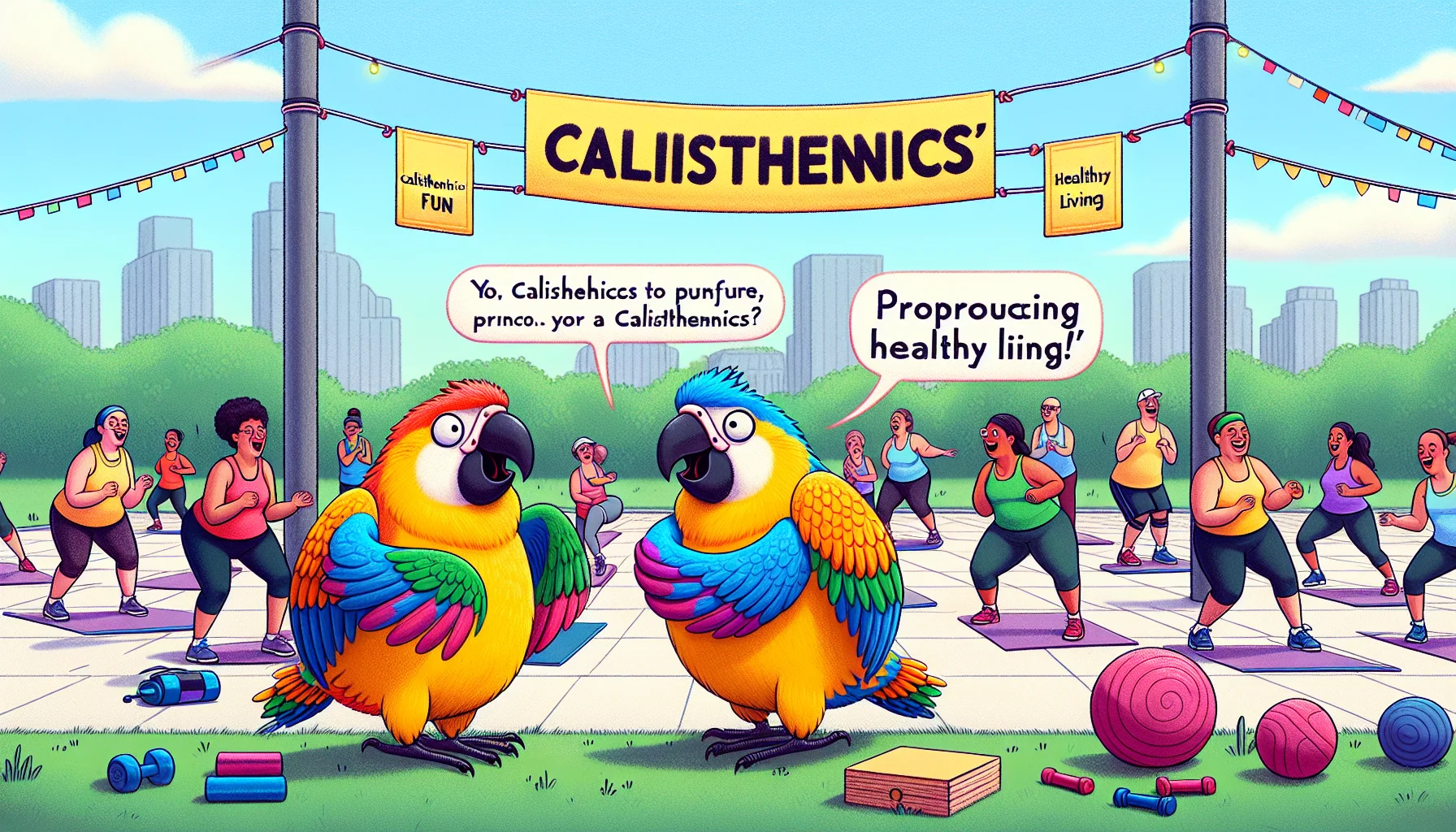Calisthenics pronunciation Quiz
Test Your Knowledge
Question of
Understanding Calisthenics Pronunciation
The correct pronunciation of fitness terms, especially in the context of calisthenics, is crucial for a variety of reasons. Firstly, it ensures clear communication between instructors and participants, minimizing the risk of misunderstandings and injuries. Additionally, proper terminology pronunciation fosters a professional atmosphere in training sessions and helps in accurately conveying instructions and feedback. In the realm of global fitness communities, it also aids in the universal understanding and sharing of calisthenics knowledge and techniques, thereby promoting inclusivity and mutual respect among practitioners from different linguistic backgrounds.
How to Pronounce Calisthenics
The word "calisthenics" is phonetically spelled as kuh-lis-THEN-iks. To pronounce it correctly, start with a soft "kuh" sound, followed by a clear and slightly stressed "lis." Then, smoothly transition to a strong and emphasized "THEN," and finally, end with the "iks" sound. Remember, the emphasis is on the "THEN" part of the word.
The Origin of Calisthenics
The word "calisthenics" comes from the Greek words "kalos," meaning beautiful, and "sthenos," meaning strength. It refers to the art of using one's body weight and qualities of inertia as a means to develop one's physique. The origin of the word significantly influences its pronunciation, particularly in the emphasis on the second syllable, aligning with the Greek pronunciation. This etymological background not only enriches the word's meaning but also connects the physical practice to its ancient roots of enhancing both physical beauty and strength.
Common Mispronunciations of Calisthenics
- Call-is-then-ics
- Calis-ten-ics
- Cal-steen-ics
- Calis-then-ix
- Cal-isth-en-ics
Why Pronunciation Matters in Fitness
In the realm of fitness, clear communication is paramount, especially when it comes to instructional contexts or the process of learning new exercises. The significance of pronunciation cannot be overstated, as it directly impacts the effectiveness of workout routines and the safety of participants. Mispronunciation can lead to misunderstandings, which in turn might result in incorrect execution of exercises, potentially causing injuries. Furthermore, accurate pronunciation fosters a more inclusive and accessible fitness environment, ensuring that everyone, regardless of their background, can benefit from the instructions and guidance provided. It also helps in building trust and credibility among fitness professionals and their clientele, establishing a foundation of clear and effective communication that enhances the overall learning and training experience.
Practice Tips for Mastering Calisthenics Pronunciation
- Start by breaking the word into syllables: Cal-is-then-ics. Practice saying each syllable slowly and then gradually increase your speed.
- Listen to the pronunciation by native speakers or pronunciation tools online and try to mimic the tone and rhythm of their speech.
- Use the word in sentences to get comfortable with its pronunciation in different contexts. For example, "I incorporate calisthenics into my daily workout routine."
- Record yourself saying the word "calisthenics" and listen to the playback. This can help you identify areas for improvement.
- Engage in tongue twisters that focus on similar sounds to improve your diction and ability to pronounce challenging words like "calisthenics."
- Practice with a partner or coach who can provide feedback on your pronunciation and offer tips for improvement.
- Regularly include the word in your conversations about fitness to become more comfortable with its pronunciation over time.
- Remember, consistency is key. Dedicate a few minutes each day to practice pronouncing "calisthenics" and other challenging fitness terminology.












